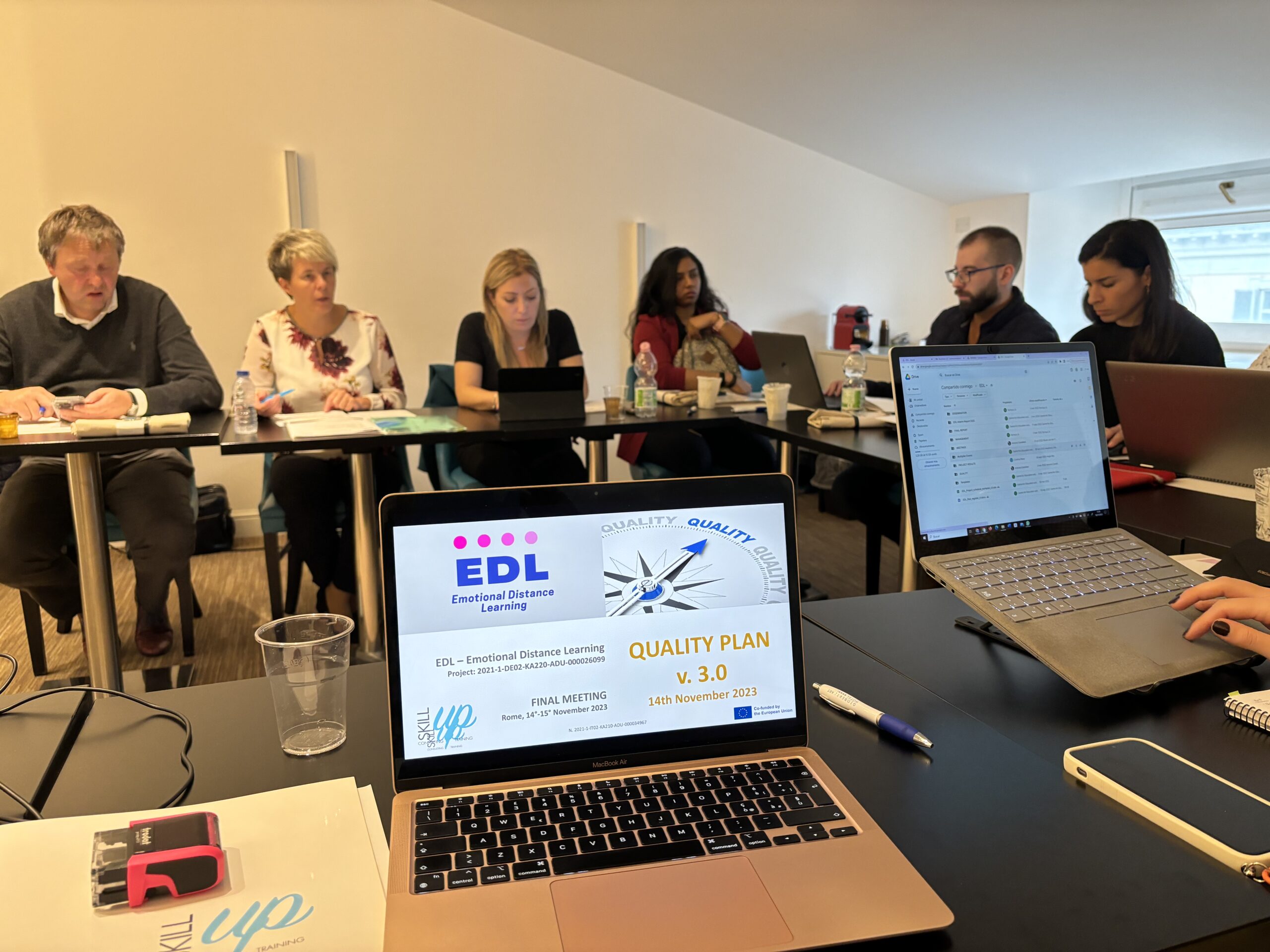By Jelena Zascerinska, Hochschule Wismar
Distance learning has become an indispensable strategy in adult education.
Distance learning is also known as distance education and online learning (Simonson & Berg, 2023) as shown in Figure 1.

Figure 1 The inter-connections between distance learning, distance education and online learning (the authors)
Distance learning is a way of educating students online (Simonson & Berg, 2023). In turn, distance education means that the learner is physically separated from the teacher (Saykılı, 2018).
Our analysis of the definitions allows for a finding that despite the use of the term “distance learning” with the focus on learning, distance education is meant. Consequently, the teaching-learning process is applicable to distance learning. The other name of the teaching-learning process is the educational process (Zaščerinska, Zaščerinskis, Andreeva, & Aļeksejeva, 2013). The educational process proceeds in three phases (Zaščerinska, Zaščerinskis, Andreeva, & Aļeksejeva, 2013) as depicted in Figure 2.

Figure 2 Phases of the educational process (Zaščerinska, Zaščerinskis, Andreeva, & Aļeksejeva, 2013)
Adult distance learning is an emotional process. Each phase of the educational process in distance learning is impacted by emotions.
Teaching in Phase 1 relates to individual’s interpersonal emotions or external emotions, while Learning in Phase 2 refers to individual’s intrapersonal emotions or internal emotions (Ahrens, & Zascerinska. 2022). Peer-learning in Phase 2 means the synthesis of interpersonal emotions and intrapersonal emotions, or, in other words, quasi-emotions. It should be pointed that in contrary to the definition of quasi-emotions as “second-order” beliefs (Dos Santos, 2017), the present work defines quasi-emotions as asymmetrical, in flux at various stages and can be interpreted differently at different points in time (Robbins, 2007). Quasi-emotions refer to peer-learning only.
Consequently, the emotional educational process outlined in Figure 3 gradually proceeds
- From teaching, on the one hand and external emotions, on the other hand,
- Thorough peer-learning, on the one hand and quasi-emotions, on the other hand,
- To learning, on the one hand and internal emotions, on the other hand.
Figure 3 The process of emotion development in the educational process (the authors)
Peer-learning is the phase between teaching, when individual implements an activity with others’ help and learning, when individual acts autonomously. In peer-learning, individual is able to use and regulate his/her emotions at a certain level with others’ particular assistance, or, in other words, with peer mutual interactions. In education, peer-learning conventionally implies group work organised in distance learning.
Thus, quasi-emotions play a crucial role in adult emotional distance learning. Quasi-emotions in peer-learning help balance the individual’s emotions in distance learning.
Despite the shift of the paradigm in education first towards peer-learning and later to learning-centred approach, the implementation of the whole educational process, namely teaching in Phase 1, peer-learning in Phase 2 and learning in Phase 3, is of great importance in order to provide an emotionally balanced distance learning. Organisation of only one or two phases of the educational process while omitting the other phase(s) leads to the imbalance of individual’s emotions.
Also important is the sequence of the implementation of the phases of the educational process: the educational process has to follow the proposed logic:
- From Teaching in Phase 1,
- Through Peer-learning in Phase 2, and
- To Learning in Phase 3.
Another significant point is that each phase of the educational process is built on the previous one. Recommendation for teachers in distance learning is that the next phase of the educational process is not started till the present phase of the educational process is thoroughly set up.
References
Dos Santos, M. (2017). Walton’s Quasi-Emotions Do Not Go Away, The Journal of Aesthetics and Art Criticism, Volume 75, Issue 3, August 2017, Pages 265–274, https://doi.org/10.1111/jaac.12385
Robbins D. (2007). Vygotsky’s and Leontiev’s Non-classical Psychology Related to Second Language Acquisition. International Nordic-Baltic Region Conference of FIPLV Innovations in Language Teaching and Learning in the Multicultural Context 15-16th June, 2007, Riga, Latvia 2007; 49-52.
Simonson, Michael and Berg, Gary A. (2023). “distance learning”. Encyclopedia Britannica, 7 Nov. 2016, https://www.britannica.com/topic/distance-learning. Accessed 3 January 2023.
Saykılı, A. (2018). Distance education: Definitions, generations, key concepts and future directions. International Journal of Contemporary Educational Research, 5(1), 2-17.
Zaščerinska, J., Zaščerinskis, M., Andreeva, N., Aļeksejeva, L. (2013). Factors that Influence the Educational process. International Journal of Modern Education Forum (IJMEF) Volume 2, Issue 3 (August 2013), pp. 57-65. Print ISSN 2324-6928, online ISSN 2324-6944. http://www.ijmef.org/AllIssues.aspx.
Ahrens, A., & Zascerinska. J. (2022). The Emotions in light of the Work by Vygotsky and Leontiev: notions, features and functions. Regional Formation and Development Studies, No. 2 (37), pp. 7-18. ISSN 2029-9370. DOI: https://doi.org/10.15181/rfds.v37i2.2417.
Ahrens, A., & Zascerinska, J. (2023). Teachers’ Emotional Experience in Online Classes in Adult Education in Selected European Countries. ICPMT 2023: 17. International Conference on Pedagogical Methodology and Technology February 06-07, 2023 in Paris, France. https://waset.org/pedagogical-methodology-and-technology-conference-in-february-2023-in-paris (accepted for publication).



0 Comments